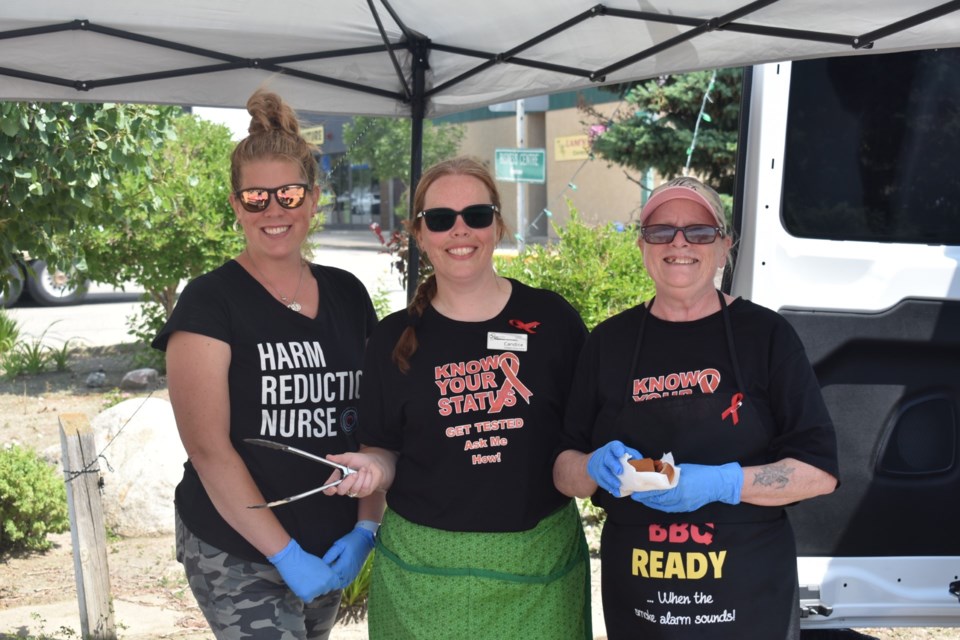SIGN (Society for the Involvement of Good Neighbours) Positive Impact held a series of engaging and educational barbecue events across three locations. The gatherings took place at the Yorkton Public Library on the 27th of June, in Kamsack on 28th, and at the Melville food bank on the 29th. The events were organized in collaboration with the Turning Point Program by the Saskatchewan Health Authority (SHA), public health nurses from Kamsack, and the mobile community health nurses of Indigenous Services Canada.
Throughout the three days, approximately 250 hot dogs were served, providing attendees with a tasty treat while they participated in informational games. These interactive activities aimed to challenge misconceptions and reduce the stigma surrounding various viruses, such as HIV and Hepatitis. Numerous individuals reported gaining new insights during the events, such as learning that HIV can be effectively suppressed within a person's body, rendering it non-transmissible, and that Hepatitis C can be cured.
Moreover, the events offered the opportunity for attendees to acquire take-home HIV self-test kits. Similar to at-home COVID-19 or pregnancy tests, these kits enable individuals to determine their HIV status in the comfort and privacy of their own homes. By normalizing testing and promoting personal agency in matters of health, Positive Impact strives to empower individuals to take control of their well-being, recognizing that knowledge is indeed power.
The collaborative efforts of SIGN Positive Impact, SHA's Turning Point Program, Kamsack public health nurses, and Indigenous Services Canada's mobile community health nurses have allowed these barbecue events to make a positive impact on the community. By combining fun gatherings with educational initiatives, attendees were able to not only enjoy a hot dog but also gain valuable knowledge about viruses and take steps towards proactive health management.



